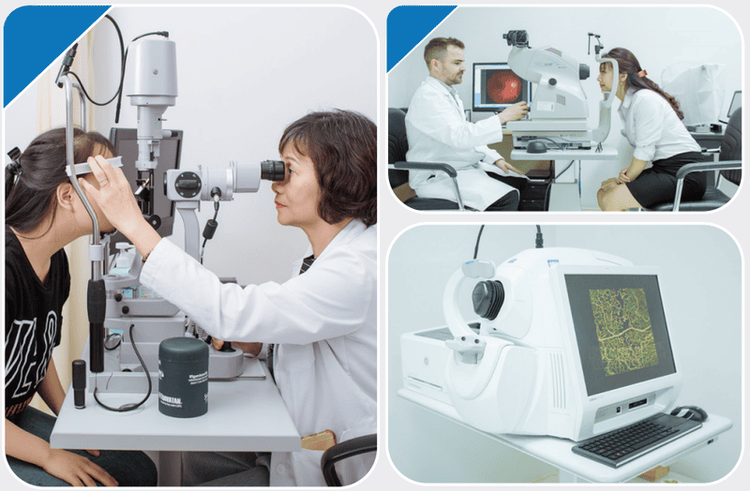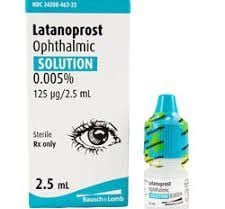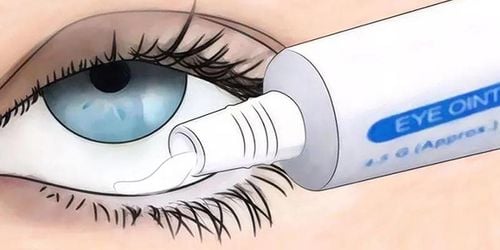This is an automatically translated article.
The article was written by Specialist Doctor II Nguyen Thai Hung - Ophthalmologist, Department of Examination & Internal Medicine - Vinmec Da Nang International General HospitalUveitis is one of the eye diseases. There are many causes of this condition including inflammation, injury or other autoimmune diseases. If the disease is not treated in time, it will cause more troubles and more seriously lead to loss of vision.
1. Uveitis Overview
Uveitis, also known as iritis, is an inflammation of the eye, which is red, painful, and has blurred vision, possibly with glare. The disease reduces vision, but with early treatment, symptoms can be reduced and vision is preserved.Uveitis is the name that comes from the word uvea, which means the middle layer of the eye. It includes the iris (the brown part). The inflammation can affect other parts of the eye such as the lens or retina. Adults between the ages of 20 and 60 are most likely to get this condition.
The effect of uveitis on the eye is very much dependent on the cause of the disease and early treatment. It can cause only minor problems with vision or more serious vision loss such as glaucoma or cataracts. The disease can appear for a short time or last for many years and recur many times.

2. What causes uveitis?
Noninfectious uveitis can be caused by trauma to the eye or by blood antigens. The middle layer of the iris is full of blood vessels, and when the immune system fights off a threat, the cells and chemicals it makes can travel through the bloodstream and into the eye. That causes inflammation. If the body has one of the following underlying diseases, the chance of uveitis is higher:AIDS ; Behcet's syndrome ; Multiple Sclerosis ; Psoriatic arthritis ; Rheumatoid arthritis ; Sarcoidosis; Tuberculosis ; Ulcerative colitis; Crohn's disease. In some cases, doctors don't know what causes non-infectious uveitis.

3. Symptoms of uveitis
Uveitis can affect one or both eyes. Symptoms can come on quickly. If you notice any of these signs, see an ophthalmologist immediately:Blurred vision; Eyesore; Red eyes; Light sensitivity;
4. How is the diagnosis?
The ophthalmologist will examine the eyes and ask questions about symptoms such as:Pain; Vision changes; The ability to see into the light; What makes symptoms better or worse; Injuries to the eyes or face; Health problems. Visual acuity tests on examination:
Vision to see visual acuity; Measurement of pressure in the eye (intraocular pressure); Dilate pupils to look behind the eyes; Use a microscope and a thin beam of light to examine different parts of the eye. Your doctor may also do blood tests, take X-rays, or perform other lab tests to check for medical conditions that may be associated with uveitis.

5. Treatment for uveitis
It's important to treat uveitis early so it doesn't lead to other serious complications, like glaucoma or cataracts.Your doctor may use steroid eye drops to reduce swelling, redness, and pain. Steroid injections or prescription medications are also other options for treatment. In addition, the doctor may ask the patient to take medications such as atropine to dilate the pupils (to relieve pain and prevent the iris from sticking).
Doctors can treat the disease with steroid drugs. This is often the treatment for long-term illnesses. But with this treatment, there is a greater chance of developing cataracts or glaucoma. The surgery to place the capsule in the eye must be done in a hospital.
If taking oral steroids for a long time can cause side effects, causing cataracts, stomach ulcers, osteoporosis, diabetes and weight gain.
Other treatment options are medications that suppress the immune system. These are called immunosuppressants. Or you can take medications to enhance the body's response to inflammation, called biologics. When taking this medicine, the patient will have regular blood tests and doctor visits to make sure they are not causing any side effects.
If your uveitis is caused by another condition, you'll need to make sure you get the right treatment, too. The outcome of treatment depends on the root cause and the timing of early treatment. Uveitis can happen only once, or it can come back again and again. But medication can help relieve pain, restore vision, and prevent damage to the eye.
If you are experiencing vision problems, go to a medical facility immediately to be examined and treated by doctors as soon as possible. Currently, Vinmec International General Hospital has vision-related service packages such as:
Refractive error screening package Cataract surgery consultation and examination package Ortho-K package.
Please dial HOTLINE for more information or register for an appointment HERE. Download MyVinmec app to make appointments faster and to manage your bookings easily.
Reference source: webmd.com













